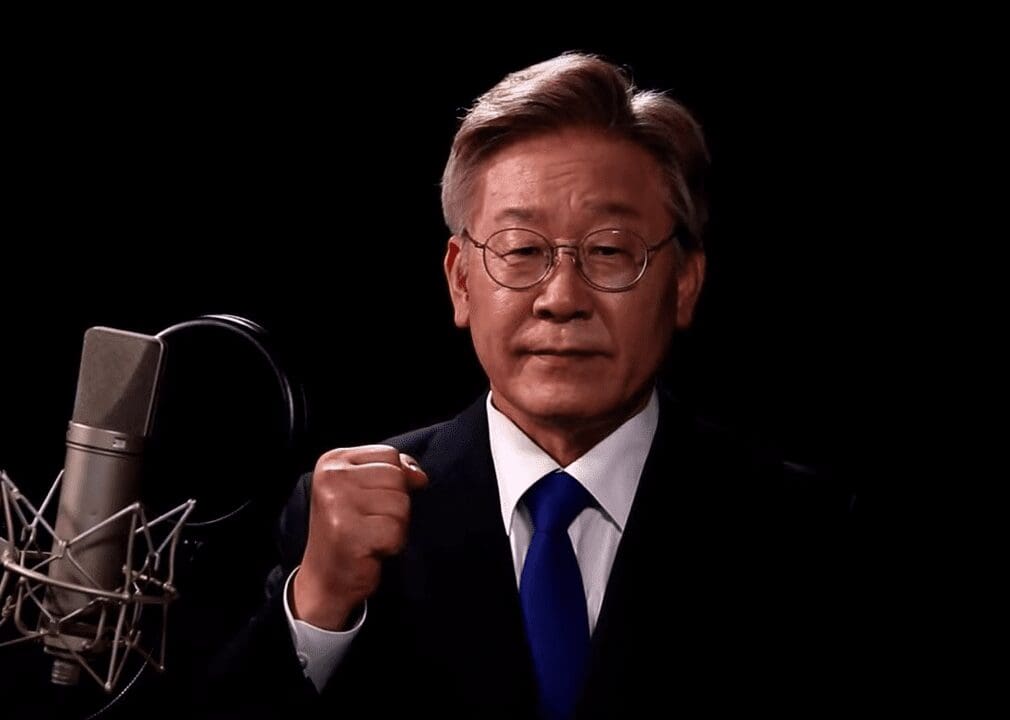Vowing to alleviate unfairness and inequality, Lee promises to turn crisis into opportunity with powerful policies
Gyeonggi Province Gov. Lee Jae-myung officially announced his presidential bid Thursday, vowing to ensure fairness and to turn a crisis into an opportunity with powerful economic policies.
Using a prerecorded video released via social media channels including YouTube and Facebook, Lee signaled the beginning of his presidential campaign by reading Article 1 of the Constitution.
“The Republic of Korea shall be a democratic republic. The sovereignty of the Republic of Korea shall reside in the people, and all state authority shall emanate from the people,” he said.
Underlining that the purpose of a nation and living together is for a safer and better life, Lee said Korea was facing a crisis today with low growth because of unfairness and inequality despite having more capital, better technology, greater labor forces and stronger infrastructure than ever.
“Lack of opportunity due to low growth is a major cause of all problems such as low birthrate, aging population and unemployment,” he said.
“The era of high growth where investment alone led to an economic virtuous circle with increasing employment, income and consumption is now gone.”
In order to better lives for people and grow continuously, the Gyeonggi Province governor highlighted the importance of securing fairness, alleviating inequality and polarization, expanding welfare and guaranteeing fundamental economic rights.
“Like the New Deal during the Great Depression, the public sector has to pave the way for the private sector to venture investment and innovation in the era of great changes,” Lee said.
“Half a step late, we are being dragged. Half a step ahead, we can use the crisis as an opportunity. The worldwide crisis is a golden opportunity for us to move on to a leading economy from the tough, chasing economy in the past.”
Saying that politics is the object of distrust and ridicule because there are no sanctions for violating campaign promises, Lee claimed that he has fulfilled over 90 percent of his campaign pledges during his three-year tenure as governor of Gyeonggi Province and as a two-time mayor of the city of Seongnam, Gyeonggi Province, over eight years.
Pledging to immediately start powerful economic revival policies to shift the economic paradigm into future industry and create quality jobs, the governor also vowed to introduce a universal basic income to increase insufficient consumption and create a society where everyone can enjoy a minimum level of affluence and work in a job they want.
Lee also said he would build a global cultural powerhouse with an “ideal” working environment for all laborers, and he will open a new path based on strong self-defense for peaceful coexistence and common prosperity through balanced diplomacy centered on national interests.
The Gyeonggi Province governor has long been considered the front-runner among the ruling Democratic Party of Korea’s presidential candidates by a wide margin.
According to a survey released by the Korea Society Opinion Institute on Monday, Lee was the second most favored presidential candidate overall, with 28.4 percent of respondents choosing him.
Former Prosecutor General Yoon Suk-youl, who officially launched his presidential campaign Tuesday, received the largest share of support, with 32.4 percent. Former Prime Minister Lee Nak-yon, another contender from the ruling Democratic Party, took the third spot at 11.5 percent.
Lee now faces eight other competitors in the Democratic Party’s presidential primaries, including former Prime Ministers Lee Nak-yon and Chung Sye-kyun and former Justice Minister Choo Mi-ae.
Branded as “an interview of the presidential hopefuls in front of the public,” the Democratic Party will hold four televised debates starting from Saturday night. After the last debate on July 8, the party will conduct two equally weighted surveys of its own members and of the general public for three days to decide the top six candidates for the primary election. The Democratic Party’s final nominee for next year’s presidential election will be selected by Sept. 10.





















